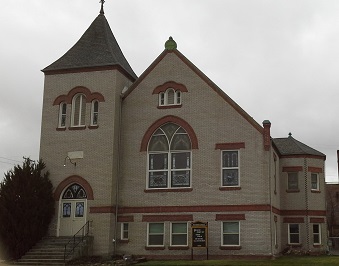 |
| Photo courtesy Oklahoma Conference |
Concern for those in distress after calamities is rooted in both Old and New Testaments. Rabbi Myrna Matsa reminds us that being a holy people means caring for people and the earth, and leaving the world a better place. Jesus, who was steeped in Jewish wisdom, spells out in Matthew 25 the duty disciples have to those who are in need. Assisting communities and people affected by disaster is one way we follow Jesus Christ.
As with the bridesmaids who needed to bring extra oil in Matthew’s parable of the wedding guests, we must be ready when God calls us to respond to human need. The message is: “Be alert.”The United Methodist Committee on Relief (UMCOR), along with other public and private agencies, is constantly on alert. We were already in touch with the Oklahoma Conference leadership following Monday’s tornado in Shawnee and continued to connect with them on Tuesday following the tornado in Moore.In the name of Jesus, when disaster strikes, we provide emergency food, water, shelter, and medical care, and begin the harrowing process of clean up. In Oklahoma we have: • Worked with the conference’s Office of Mission to begin to determine the resources that will be needed for recovery. • Shipped relief supplies including cleaning buckets and bedding kits from UMCOR Sager Brown in Baldwin, Louisiana. The UMCOR depot stands ready to send additional relief kits as requested.Additional needs are likely to surface following the emergency phase. We will remain in contact with the conference’s Office of Mission to sort out the resources that will be needed for long-term recovery. These are likely to include training and expertise in long-term disaster case management—UMCOR is a recognized leader in providing this crucial training—as well as encouraging volunteers for rebuilding through UMVIM .
 |
| Photo courtesy Oklahoma Conference |
The devastating tornadoes that wiped out much of Moore, Oklahoma, as well as the dozens of tornadoes in several states early this week call Christians to put into practice our best theology of compassion and action.
 |
| Photo courtesy Oklahoma Conference |
• Offered the conference all available UMCOR resources, including emergency funds, relief supplies,
and training in early response and spiritual and emotional care.

